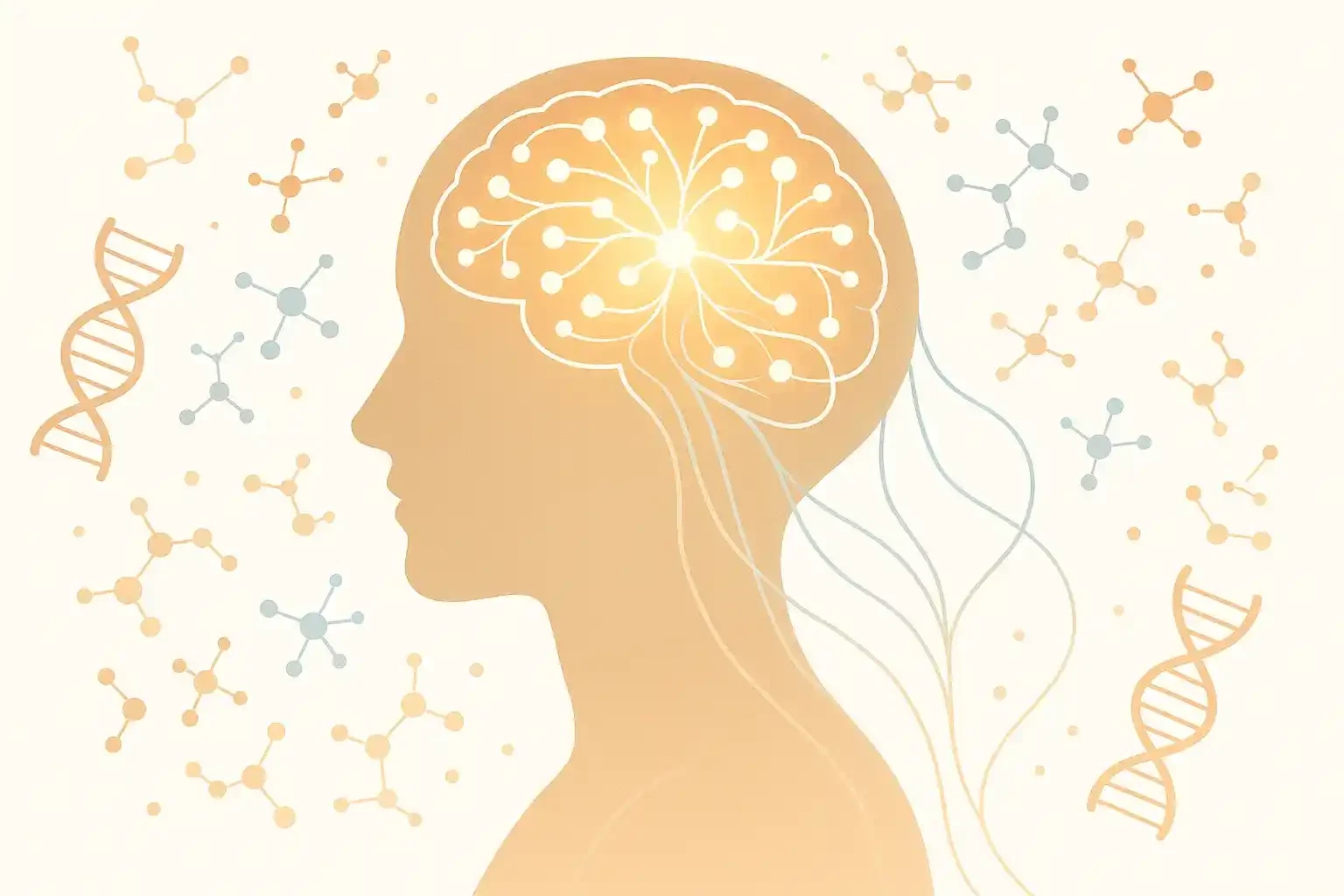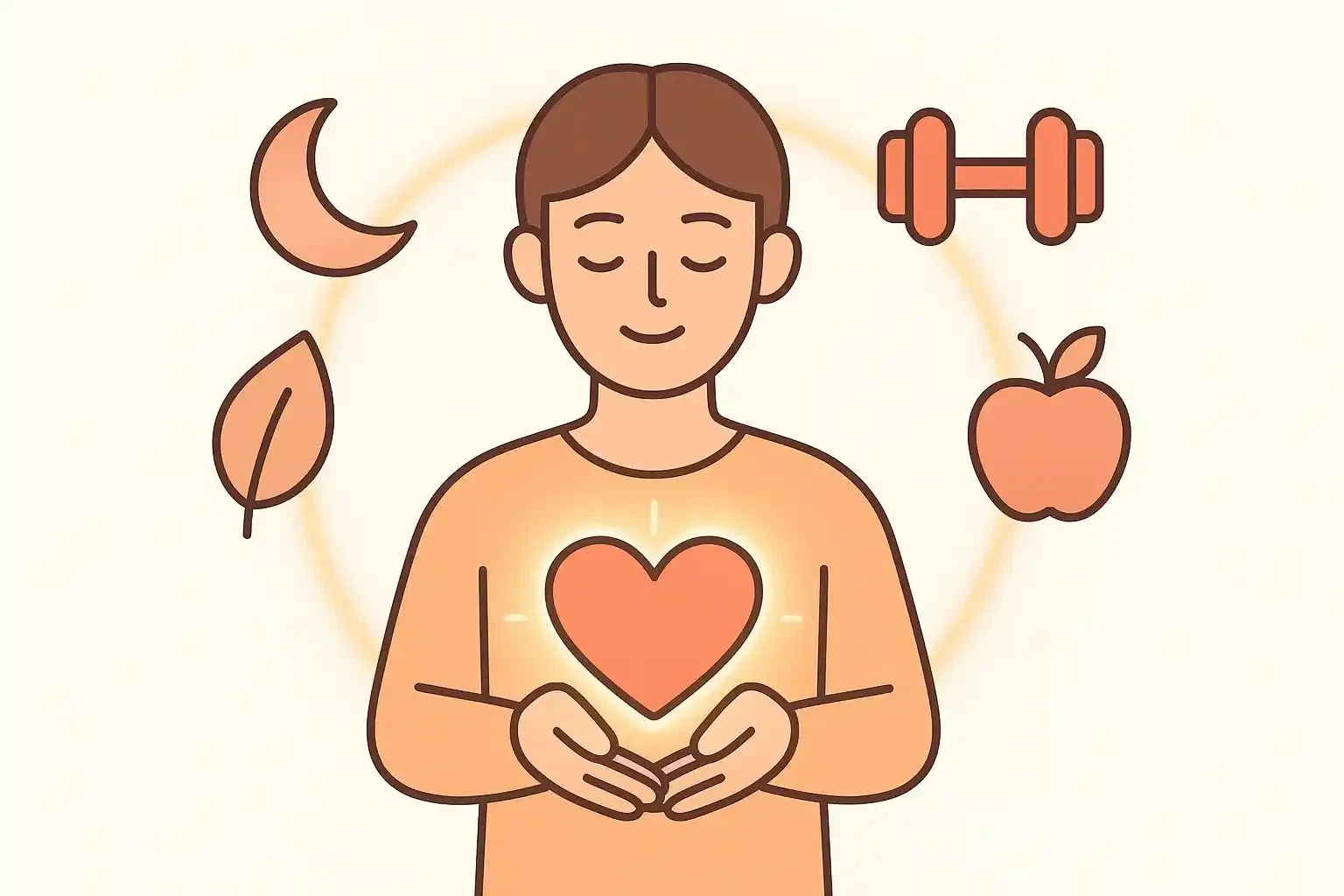
Biological and Genetic Predisposition
Family history of depression, genetic variations affecting neurotransmitter function, and brain chemistry imbalances can increase susceptibility to depression.
Gentle movement, conscious breathing, and mindful awareness practices designed to support emotional healing and cultivate inner light during challenging times.

Depression is a complex mood disorder that significantly impacts emotional regulation, cognitive function, and daily life activities. Unlike temporary sadness or stress, depression is a persistent condition affecting multiple dimensions of well-being over weeks or months. Common symptoms include sustained feelings of sadness, emptiness, or hopelessness; diminished interest in previously enjoyed activities; chronic fatigue and low energy; difficulty concentrating or making decisions; changes in sleep patterns or appetite; and overwhelming feelings of worthlessness or guilt. Depression results from a complex interplay of biological, psychological, environmental, and social factors. While professional medical treatment is essential, yoga can serve as a valuable complementary practice that supports mental health recovery by addressing stress, improving mood, and promoting overall emotional wellness.

Family history of depression, genetic variations affecting neurotransmitter function, and brain chemistry imbalances can increase susceptibility to depression.

Negative thought patterns, low self-esteem, perfectionism, history of trauma or abuse, and chronic stress can contribute to depression.

Social isolation, financial stress, work pressures, discrimination, and major life changes can trigger or worsen depression.

Chronic medical conditions, certain medications, substance use, poor sleep patterns, and nutritional deficiencies can contribute to depressive symptoms.
Find your inner light through gentle movement, conscious breathing, and compassionate self-care practices designed to support your healing journey.

Engage in regular, gentle yoga practices including Surya Namaskar (Sun Salutations), Tadasana (Mountain Pose), and Balasana (Child's Pose). These movements improve circulation, release physical tension, stimulate endorphin production, and naturally lift mood while building physical and mental resilience. Start slowly and listen to your body's needs.
Develop a daily mindfulness routine with techniques like Yoga Nidra, Anulom Vilom (Alternate Nostril Breathing), and breath awareness meditation. These practices help you observe thoughts without judgment, reduce rumination, calm anxiety, and cultivate inner peace and emotional stability.
Participate in group yoga classes, meditation groups, or supportive community activities. Social connection in a non-judgmental, healing environment provides emotional support, reduces isolation, and fosters a sense of belonging and purpose, which are crucial for mental health recovery.
Work with qualified mental health professionals, and consider yoga therapy as a complementary approach. A personalized practice created with professional guidance can enhance traditional therapy, support emotional regulation, and provide additional tools for managing depression symptoms safely and effectively.
Yoga is highly beneficial in managing depression because it addresses the body, mind, and breath simultaneously, creating a holistic approach to mental health. Gentle yoga asanas, such as Surya Namaskar, Tadasana, and Balasana, improve blood circulation, release muscle tension, and stimulate the nervous system, which can help lift one's mood and reduce the lethargy often associated with depression. Breathing exercises such as Anulom Vilom, Bhramari, and Sheetali Pranayama calm the mind, regulate stress hormones, and reduce anxiety. Mindfulness practices, such as Yoga Nidra, guided meditation, or breath awareness, cultivate self-awareness, reduce negative thought patterns, and promote emotional balance. Additionally, participating in group yoga classes or partner yoga sessions offers social support, which can be particularly beneficial in combating feelings of isolation. By integrating physical movement, breath control, meditation, and social connection, regular yoga practice can improve mood, enhance resilience, and support overall mental well-being for those experiencing depression.
Explore timeless wisdom on mental health, wellness, yoga, and more — all in one place.

Mental Health Advocate

Yoga Practitioner

Wellness Coach

Mental Health Advocate

Yoga Practitioner

Wellness Coach
